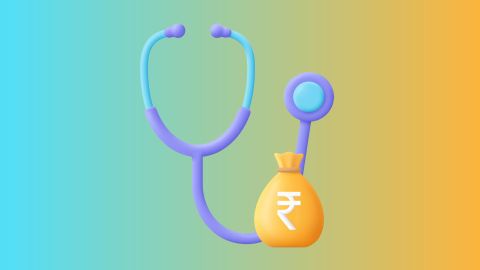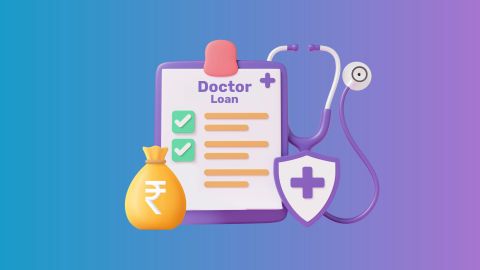Types of medical officers
Medical officers can specialise in various fields depending on their area of expertise and the facilities they work in. Some common types include:
Civil surgeon: Manages district-level healthcare services
Chief medical officer: Oversees large healthcare institutions or district hospitals
Health officer: Works within public health departments to monitor and control public health issues
Military medical officer: Provides medical services within the defence forces
Medical officer vs. doctor
Criteria
|
Medical officer
|
Doctor
|
Role
|
Administrative and supervisory
|
Clinical and patient care
|
Qualifications
|
MBBS + experience or specialisation in public health
|
MBBS or specific specialisation
|
Work location
|
Hospitals, public health services, military
|
Hospitals, clinics, private practices
|
Responsibilities
|
Policy implementation, supervising medical staff
|
Diagnosing and treating patients
|
Responsibilities of a medical officer
Responsibilities of a medical officer
|
Example tasks
|
Managing medical staff
|
Hiring, training, and evaluating staff
|
Overseeing patient care
|
Ensuring high standards of healthcare
|
Implementing health policies
|
Developing policies for patient treatment
|
Conducting research
|
Participating in clinical research trials
|
Liaising with health authorities
|
Coordination with government health departments
|
Medical Officer job opportunities
Some of the job roles available for medical officers include:
District medical officer: Manages healthcare delivery across a district
Hospital medical superintendent: Oversees the operations of a hospital
Public health medical officer: Works on public health initiatives and policies
Military medical officer: Provides medical services to armed forces personnel
How to become a medical officer
Becoming a medical officer takes dedication, proper education, and hands-on training. You’ll also need a valid licence and certificate to practice. Here’s a simple step-by-step guide to help you understand the journey:
Step 1: Complete your 10+2 with science
Choose the science stream with physics, chemistry, and biology as core subjects. Aim for high marks, as most medical colleges have competitive cut-offs. Start preparing for medical entrance exams like NEET (National Eligibility cum Entrance Test).
Step 2: Get an MBBS degree
After 12th, you’ll need to clear NEET to get into a recognised medical college. The MBBS course takes 5.5 years, which includes a one-year mandatory internship. The syllabus covers anatomy, pathology, pharmacology, surgery, and clinical training. After MBBS, doctors can pursue postgraduate qualifications like MD, MS, or Diplomate of National Board (DNB) for specialisation.
Step 3: Complete your internship
The internship is a crucial part of your MBBS journey. You’ll rotate through departments like internal medicine, surgery, pediatrics, obstetrics and gynecology, and emergency medicine. This helps you gain practical experience and apply what you’ve learnt in real-life cases.
Step 4: Gain clinical experience
After the internship, start working as a junior doctor or medical resident. You can gain experience by joining residency programs, working in clinics, hospitals, or health centres, or volunteering in medical camps or public health initiatives. The more experience you get, the better your chances of advancing in your career.
Step 5: Clear the UPSC exam (for government roles)
To become a medical officer in government services, you must clear the UPSC Combined Medical Services Exam. Eligibility: MBBS degree holders can apply. The exam includes a written test and a personal interview. Prepare well with a mix of medical knowledge, current affairs, and general studies.
Step 6: Apply for medical officer jobs
Once qualified, start applying for medical officer roles in both public and private sectors. Make a professional resume showcasing your education and experience, check job portals, hospital websites, and government recruitment boards for openings, and network with professionals through medical events and associations.
Becoming a medical officer in India requires commitment and structured training but leads to a highly respected and rewarding career in the healthcare sector.
Recommended courses for becoming a medical officer
Course
|
Duration
|
Estimated cost (INR)
|
MBBS (Bachelor of Medicine, Bachelor of Surgery)
|
6 years
|
5,000 – 10,00,000
|
MPH (Master of Public Health)
|
1-2 years
|
50,000 – 5,00,000
|
Diploma in Hospital Administration
|
1-2 years
|
30,000 – 2,00,000
|
Skills required to become a medical officer
To succeed as a medical officer in India, you need a strong mix of academic knowledge, clinical training, and soft skills. Here are some key skills medical officers require:
Medical knowledge: A strong understanding of anatomy, physiology, pharmacology, and pathology is essential for diagnosing and treating patients effectively.
Clinical skills: The ability to conduct examinations, interpret diagnostic tests, prescribe medications, and perform clinical procedures is crucial.
Communication skills: Explaining medical conditions and treatments clearly to patients and their families is important for building trust and ensuring compliance.
Attention to detail: Being observant and precise helps detect subtle signs, avoid errors, and ensure accurate diagnosis and treatment.
Interpersonal skills: Medical officers must collaborate smoothly with colleagues and staff, making teamwork a key part of the role.
Empathy: Understanding a patient’s emotions and showing compassion helps improve the quality of care and patient satisfaction.
Leadership and teamwork: Guiding junior staff and working as part of a coordinated healthcare team is vital in hospital and clinic settings.
These skill sets help deliver effective patient care and prepare you for career growth and leadership roles in various healthcare environments.
Is a medical officer the same as a doctor?
A medical officer differs from a doctor in terms of responsibilities and focus. While doctors are clinical professionals who diagnose illnesses, prescribe treatments, perform surgeries, and hold medical degrees, medical officers take on a more administrative role. They oversee clinical operations, act as a bridge between healthcare management and medical staff, and focus on ensuring that healthcare services are delivered efficiently rather than providing direct patient care.
Conclusion
Becoming a medical officer requires a deep commitment to healthcare, supported by rigorous education and hands-on experience. Unlike general practitioners, medical officers often take on broader roles that include supervision, administration, and public health responsibilities, making their contribution vital to the functioning of healthcare institutions.
Need a doctor loan as a medical officer?
For medical professionals aiming to enhance their qualifications or set up a practice, it’s important to be aware of the essential criteria involved. Understanding your doctor loan eligibility and other loans for professionals is a key step in securing the financial backing needed to pursue your career goals with confidence.
If you're planning a career in healthcare or wish to advance in your current role, a doctor loan from Bajaj Finance can support your educational and professional development. To plan your finances more effectively, it’s also advisable to check the prevailing doctor loan interest rate, so you can make informed decisions about repayment and long-term financial planning.





